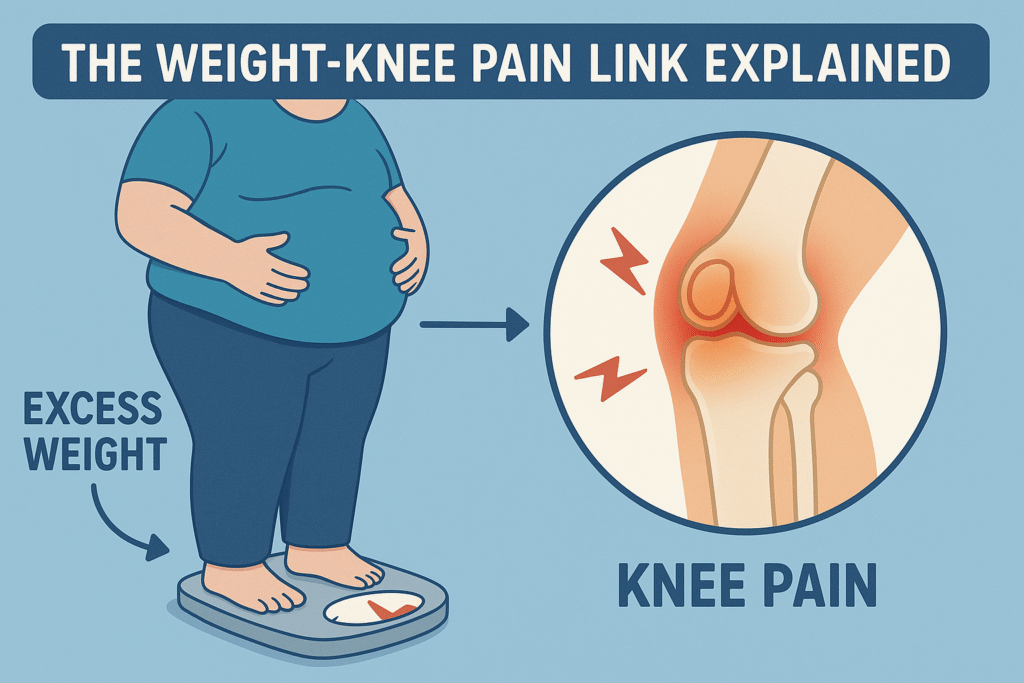
Your knees are among the most important joints in your body, supporting you through daily activities like walking, climbing stairs, and exercising. However, carrying excess weight can place significant stress on your knees, leading to pain, discomfort, and long-term joint issues. Understanding how body weight affects your knees is the first step toward protecting your joint health and improving mobility.
How Excess Weight Impacts Knee Health
Each extra pound you carry adds nearly four pounds of pressure on your knees during activities like walking or climbing stairs. For example, if you gain 10 pounds, that translates to around 40 pounds of additional stress on your knee joints. Over time, this extra load can lead to:
- Osteoarthritis: Excess weight accelerates the wear and tear of knee cartilage, increasing the risk of osteoarthritis, a degenerative joint disease that causes pain, stiffness, and swelling.
- Joint Inflammation: Fat tissue produces inflammatory chemicals that can worsen joint pain and contribute to chronic conditions like arthritis.
- Reduced Mobility: As knee pain worsens, you may become less active, leading to a vicious cycle of weight gain and further joint stress.
Practical Steps to Protect Your Knees
The good news is that even modest weight loss can make a significant difference in knee health. According to research, losing just 5–10% of your body weight can reduce knee pain and improve function, especially if you have arthritis.
Here are practical steps to help protect your knees and maintain a healthy weight:
1. Adopt a Joint-Friendly Exercise Routine
Low-impact exercises like swimming, cycling, yoga, or walking help you stay active without placing excessive stress on your knees. Strengthening the muscles around your knees can also provide better joint support.
2. Maintain a Healthy Diet
Eating a balanced diet rich in fruits, vegetables, lean proteins, and whole grains supports weight loss and reduces inflammation. Avoid processed foods and excess sugar, which can contribute to joint pain.
3. Focus on Gradual Weight Loss
Crash diets can backfire, leading to weight gain over time. Aim for gradual, sustainable weight loss about 1–2 pounds per week to support joint health and overall wellness.
4. Use Proper Footwear
Wearing supportive shoes can reduce joint strain and improve knee alignment. Look for shoes with good arch support and cushioning.
5. Consider Physical Therapy
If knee pain persists, consult a physical therapist. They can recommend exercises to strengthen the muscles around your knees and improve flexibility.
Final Thoughts
Your body weight plays a major role in your knee health. By taking small, consistent steps to manage your weight, you can relieve pressure on your joints, reduce pain, and improve your quality of life. Protecting your knees today will help ensure you stay mobile and active for years to come.
